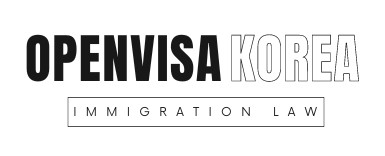Lawyers
Countries Covered
Practice Areas
Global Law Experts top search results to tackle law in South Korea: Tailored solutions for every legal challenge. Let experienced lawyers guide you through legal disputes and challenges with law insights and expertise knowledge. Our members hold proven strategies and solutions for every complex legal need.
















































No results available Reset filters?
Stay informed with comprehensive global South Korea law news, authored by a team of professional lawyers and curated by the esteemed Global Law Experts team. Explore updates from diverse practice areas and legal domains, offering valuable insights into the latest developments worldwide.
posted 3 months ago
No results available Reset filters?
 Best Lawyers in South Korea
Best Lawyers in South KoreaGlobal Law Experts connects you with the best lawyers in South Korea, providing access to elite legal professionals recognized for their skill, integrity, and proven results. Our network features top specialists in corporate law, intellectual property, dispute resolution, mergers & acquisitions, banking and finance, and international trade. Each lawyer is carefully vetted for their deep knowledge of South Korean law, global business practices, and ability to deliver strategic, results-driven solutions. Whether advising multinational corporations, investors, or individuals, Global Law Experts ensures you have premier legal counsel to navigate South Korea’s dynamic legal and business environment with confidence and success.
Every GLE member is independently vetted by practice area and jurisdiction.
To get a work visa in South Korea, a foreigner needs a job offer from a sponsoring employer. The employer applies for visa issuance confirmation from immigration. The applicant then applies at a Korean consulate with passport, photos, employment contract, qualifications, criminal record, and medical exam. Common visas include E-2 (teaching), E-7 (specialized work), and E-9 (manual labor).
In South Korea, a Jusik Hoesa (stock company) is a joint-stock company allowing shares to be publicly or privately held, suitable for large businesses and investors, with strict governance and disclosure rules. A Yuhan Hoesa (limited company) is simpler, privately held, limits liability to contributions, and is easier to set up, ideal for small to medium enterprises.
In South Korea, divorce by agreement (Hyeobui Ihon) occurs when both spouses mutually consent to end their marriage. They must submit a joint application to the local family court or district office, agreeing on issues like child custody, property division, and alimony. Once approved, the divorce is legally registered, finalizing the dissolution without litigation.
Buying real estate in South Korea involves selecting a property, signing a sales contract, and paying a deposit (usually 10%). Foreigners must file a report with the local government under the Foreigner’s Land Acquisition Act and register the purchase with the court registry. Buyers also pay acquisition, registration, and property taxes. Legal due diligence is recommended to avoid risks.
Civil lawsuits in South Korea begin when the plaintiff files a complaint with the court. The defendant responds, and the court holds hearings where both sides present evidence. Judges play an active role in examining facts and encouraging settlement. If unresolved, a judgment is issued, which can be appealed. The process is document-heavy, formal, and designed for efficiency and fairness.
In South Korea, suspects have key rights under the Constitution and Criminal Procedure Act: the right to remain silent, to be informed of charges, to legal counsel during questioning, to apply for bail, and to be free from unlawful arrest or detention. They must be brought before a judge within 48 hours, and confessions obtained by coercion are inadmissible in court.
South Korea’s tax system is based on residence and source. Residents are taxed on worldwide income, while non-residents pay only on Korean-sourced income. Main taxes include income tax (progressive up to 45%), corporate tax, VAT (10%), and property taxes. Employers withhold income tax, while individuals file annual returns. Foreigners may get exemptions or reduced rates under tax treaties.
M&A deals in South Korea involving foreign firms must comply with the Foreign Investment Promotion Act and Commercial Code. Foreign buyers must file reports with authorities, especially if acquiring 10%+ of shares. Certain sectors face restrictions for national security or public interest. The Fair Trade Commission may review for antitrust issues. Regulatory approval is often required before closing.
Key South Korean labor laws include the Labor Standards Act (sets working hours, overtime, rest, and dismissal rules), Minimum Wage Act, Industrial Safety and Health Act, and Employment Insurance Act. Employers must provide written contracts, ensure equal treatment, contribute to social insurance, and comply with rules on severance pay, maternity leave, and worker protections against unfair dismissal.
If arrested in South Korea, a foreigner should remain calm, request a lawyer, and exercise the right to remain silent. They must be informed of charges and brought before a judge within 48 hours. They should contact their embassy for assistance and interpretation. Legal counsel is vital since trials are in Korean and confessions under coercion are inadmissible in court.
Global Law Experts is dedicated to providing exceptional legal services to clients around the world. With a vast network of highly skilled and experienced lawyers, we are committed to delivering innovative and tailored solutions to meet the diverse needs of our clients in various jurisdictions.

Thinking of buying property in Brazil? Start with a full legal safety net.
✔️ Check title and ownership history
✔️ Verify no debts or disputes
✔️ Confirm zoning and permits.
#BrazilProperty #RealEstateInvesting #LegalDueDiligence #ForeignInvestment #PropertyLaw #GlobalRealEstate #InvestmentRisk #BrazilLaw

When your international business faces financial distress, quick action is key! 🔑 Negotiating with creditors, restructuring debt, and understanding insolvency laws can help regain stability. Global Law Experts is here to guide you through your options.
🌍Explore the details on our website.
🔗Link in bio
#GlobalLawExperts #CommercialLaw #BusinessLaw #LegalAdvice #BusinessGrowth #LegalTips #BusinessStrategy #LegalCompliance #Law #LegalKnowledge #LegalAwareness #Law101 #LegalEducation #IntellectualProperty

Thinking of buying property in Brazil? Don’t stop at the contract or key handover. Make sure the title is officially registered before calling it yours.
#BrazilRealEstate #PropertyLaw #GlobalInvestment #ForeignInvestors #LegalTips #DueDiligence #RealEstateRegistration #SecureInvestment

Getting a termination notice right now? Know your rights. Valid reason, fair process, proper notice they matter. Don’t let a bad dismissal walk away without accountability.
#EmploymentLaw #WorkerRights #Termination #LaborLaw #FairDismissal #WorkplaceJustice #LegalAwareness #GlobalWorkforce

Running a business is hard enough — lawsuits shouldn’t make it harder. 🚫 Protect your business with the right legal strategies and expert tools from Global Law Experts. Let’s secure your future together! 💼
🌍Explore the details on our website.
➡️www.globallawexperts.com
#GlobalLawExperts #CommercialLaw #BusinessLaw #LegalAdvice #BusinessGrowth #LegalTips #BusinessStrategy #LegalCompliance #Law #LegalKnowledge #LegalAwareness #Law101 #LegalEducation #IntellectualProperty #Infringed #Ecommerce #LegalBranding
Global Law Experts is dedicated to providing exceptional legal services to clients around the world. With a vast network of highly skilled and experienced lawyers, we are committed to delivering innovative and tailored solutions to meet the diverse needs of our clients in various jurisdictions.

Thinking of buying property in Brazil? Start with a full legal safety net.
✔️ Check title and ownership history
✔️ Verify no debts or disputes
✔️ Confirm zoning and permits.
#BrazilProperty #RealEstateInvesting #LegalDueDiligence #ForeignInvestment #PropertyLaw #GlobalRealEstate #InvestmentRisk #BrazilLaw

When your international business faces financial distress, quick action is key! 🔑 Negotiating with creditors, restructuring debt, and understanding insolvency laws can help regain stability. Global Law Experts is here to guide you through your options.
🌍Explore the details on our website.
🔗Link in bio
#GlobalLawExperts #CommercialLaw #BusinessLaw #LegalAdvice #BusinessGrowth #LegalTips #BusinessStrategy #LegalCompliance #Law #LegalKnowledge #LegalAwareness #Law101 #LegalEducation #IntellectualProperty

Thinking of buying property in Brazil? Don’t stop at the contract or key handover. Make sure the title is officially registered before calling it yours.
#BrazilRealEstate #PropertyLaw #GlobalInvestment #ForeignInvestors #LegalTips #DueDiligence #RealEstateRegistration #SecureInvestment

Getting a termination notice right now? Know your rights. Valid reason, fair process, proper notice they matter. Don’t let a bad dismissal walk away without accountability.
#EmploymentLaw #WorkerRights #Termination #LaborLaw #FairDismissal #WorkplaceJustice #LegalAwareness #GlobalWorkforce

Running a business is hard enough — lawsuits shouldn’t make it harder. 🚫 Protect your business with the right legal strategies and expert tools from Global Law Experts. Let’s secure your future together! 💼
🌍Explore the details on our website.
➡️www.globallawexperts.com
#GlobalLawExperts #CommercialLaw #BusinessLaw #LegalAdvice #BusinessGrowth #LegalTips #BusinessStrategy #LegalCompliance #Law #LegalKnowledge #LegalAwareness #Law101 #LegalEducation #IntellectualProperty #Infringed #Ecommerce #LegalBranding

Send welcome message